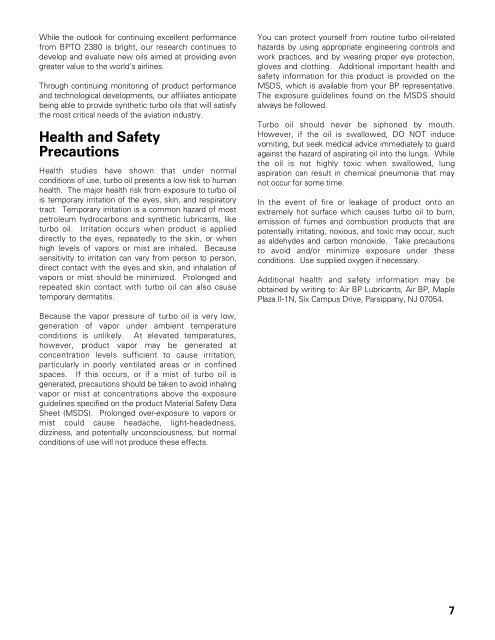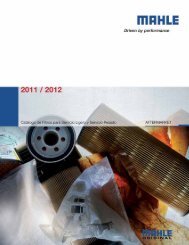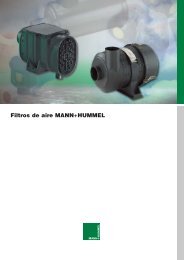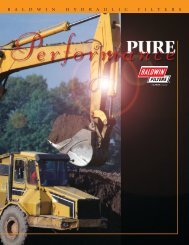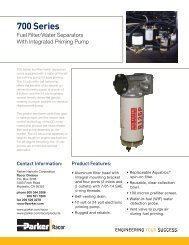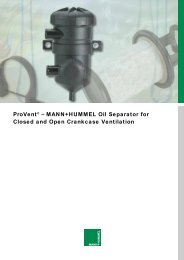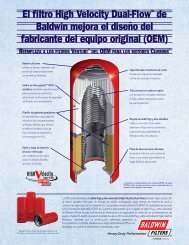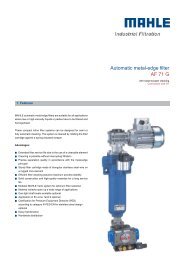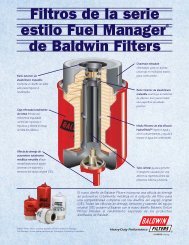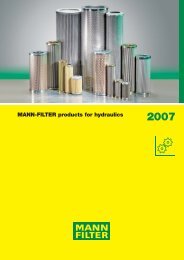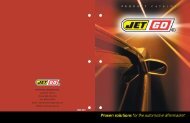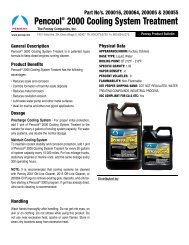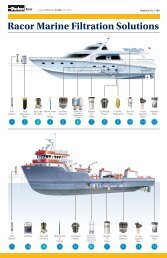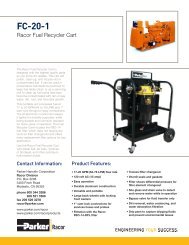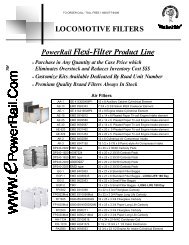946 mL – 1 U.S. Quart - BP
946 mL – 1 U.S. Quart - BP
946 mL – 1 U.S. Quart - BP
You also want an ePaper? Increase the reach of your titles
YUMPU automatically turns print PDFs into web optimized ePapers that Google loves.
While the outlook for continuing excellent performance<br />
from <strong>BP</strong>TO 2380 is bright, our research continues to<br />
develop and evaluate new oils aimed at providing even<br />
greater value to the world’s airlines.<br />
Through continuing monitoring of product performance<br />
and technological developments, our affiliates anticipate<br />
being able to provide synthetic turbo oils that will satisfy<br />
the most critical needs of the aviation industry.<br />
Health and Safety<br />
P re c a u t i o n s<br />
Health studies have shown that under normal<br />
conditions of use, turbo oil presents a low risk to human<br />
health. The major health risk from exposure to turbo oil<br />
is temporary irritation of the eyes, skin, and respiratory<br />
tract. Temporary irritation is a common hazard of most<br />
petroleum hydrocarbons and synthetic lubricants, like<br />
turbo oil. Irritation occurs when product is applied<br />
directly to the eyes, repeatedly to the skin, or when<br />
high levels of vapors or mist are inhaled. Because<br />
sensitivity to irritation can vary from person to person,<br />
direct contact with the eyes and skin, and inhalation of<br />
vapors or mist should be minimized. Prolonged and<br />
repeated skin contact with turbo oil can also cause<br />
temporary dermatitis.<br />
You can protect yourself from routine turbo oil-related<br />
hazards by using appropriate engineering controls and<br />
work practices, and by wearing proper eye protection,<br />
gloves and clothing. Additional important health and<br />
safety information for this product is provided on the<br />
MSDS, which is available from your <strong>BP</strong> representative.<br />
The exposure guidelines found on the MSDS should<br />
always be followed.<br />
Turbo oil should never be siphoned by mouth.<br />
However, if the oil is swallowed, DO NOT induce<br />
vomiting, but seek medical advice immediately to guard<br />
against the hazard of aspirating oil into the lungs. While<br />
the oil is not highly toxic when swallowed, lung<br />
aspiration can result in chemical pneumonia that may<br />
not occur for some time.<br />
In the event of fire or leakage of product onto an<br />
extremely hot surface which causes turbo oil to burn,<br />
emission of fumes and combustion products that are<br />
potentially irritating, noxious, and toxic may occur, such<br />
as aldehydes and carbon monoxide. Take precautions<br />
to avoid and/or minimize exposure under these<br />
conditions. Use supplied oxygen if necessary.<br />
Additional health and safety information may be<br />
obtained by writing to: Air <strong>BP</strong> Lubricants, Air <strong>BP</strong>, Maple<br />
Plaza II-1N, Six Campus Drive, Parsippany, NJ 07054.<br />
Because the vapor pressure of turbo oil is very low,<br />
generation of vapor under ambient temperature<br />
conditions is unlikely. At elevated temperatures,<br />
however, product vapor may be generated at<br />
concentration levels sufficient to cause irritation,<br />
particularly in poorly ventilated areas or in confined<br />
spaces. If this occurs, or if a mist of turbo oil is<br />
generated, precautions should be taken to avoid inhaling<br />
vapor or mist at concentrations above the exposure<br />
guidelines specified on the product Material Safety Data<br />
Sheet (MSDS). Prolonged over-exposure to vapors or<br />
mist could cause headache, light-headedness,<br />
dizziness, and potentially unconsciousness, but normal<br />
conditions of use will not produce these effects.<br />
7


